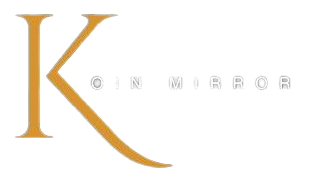[ad_1]
The Genesis of the Lawsuit
The saga started in 2020 when Wozniak and 17 different people filed a lawsuit towards YouTube and its father or mother firm Google. Their grievance stemmed from the dissemination of doctored movies that includes Wozniak’s likeness, engaging unsuspecting viewers with guarantees of free Bitcoin. These fraudulent schemes, rampant throughout the platform, exploited Wozniak’s fame and left numerous customers duped and disillusioned.
Difficult Part 230 Immunity
On the crux of the authorized battle lies the contentious Part 230 of the Communications Decency Act, a defend typically wielded by on-line platforms to deflect legal responsibility for user-generated content material. Nonetheless, the San Jose appeals court docket’s current ruling challenges this immunity, signaling a possible paradigm shift within the regulatory panorama. The choice units a precedent for holding platforms accountable for his or her position in facilitating fraudulent actions, regardless of Part 230 protections.
The Function of Verification Badges
Central to the lawsuit is the difficulty of verification badges, ostensibly designed to authenticate reliable channels on YouTube. Plaintiffs argued that YouTube’s lax enforcement of verification protocols inadvertently facilitated the unfold of fraudulent content material. By issuing verification badges to hijacked channels, the platform inadvertently lent legitimacy to rip-off operators, exacerbating the proliferation of misleading schemes.
Implications for On-line Regulation
Wozniak’s authorized triumph reverberates far past the confines of this case, sparking broader conversations in regards to the regulation of on-line platforms. The court docket’s choice underscores the necessity for proactive measures to fight fraudulent actions, safeguarding customers towards exploitation and deception. As know-how evolves, regulatory frameworks should adapt to make sure the integrity and security of digital areas.
Collaborative Options
Addressing the scourge of online scams requires a concerted effort from stakeholders throughout the digital panorama. Collaboration between platforms, regulatory our bodies, and legislation enforcement businesses is paramount in combating fraudulent actions successfully. By pooling assets and experience, stakeholders can develop sturdy mechanisms for detecting and mitigating on-line scams, thereby safeguarding customers and preserving belief in digital platforms.
Conclusion
Steve Wozniak’s authorized victory towards YouTube marks a big milestone within the ongoing battle for on-line accountability. By difficult the established order and holding platforms accountable for his or her position in facilitating fraudulent actions, the court docket’s choice paves the way in which for a extra clear and accountable digital ecosystem. As we navigate the complexities of the digital age, we should stay vigilant in safeguarding customers and upholding the integrity of on-line platforms.
[ad_2]
Source link

